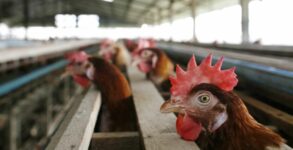It is “too early” to tell if additional measures are required to deal with Omicron in Singapore, but if needed, restrictions on travel and social gatherings would be most effective as the latest COVID-19 variant is likely to emerge in the country in coming days, Channel News Asia reported on Thursday citing medical experts.
Given that it is unclear how effective existing vaccines are against the variant, restrictions that help minimise transmission would be most effective, said Associate Professor Natasha Howard from the Saw Swee Hock School of Public Health at the National University of Singapore.
“It is difficult to determine what levels of restriction would be appropriate and effective in protecting Singapore and Singaporeans,” said Associate Professor Luo Dahai from Lee Kong Chian School of Medicine at Nanyang Technological University.
Singapore’s COVID-19 multi-ministry task force conceded on Tuesday that it is a “matter of time” before Omicron cases emerge in the country. As part of tightened measures, the country has enhanced its testing protocols for all travellers. No new vaccinated travel lanes will be opened, other than those announced earlier.
Many questions about the new variant have not been answered, added Luo.
“We don’t yet have enough information about the Omicron COVID-19 variant to know how great a risk it poses and whether additional precautions will be necessary,” Howard said.
“We are in the early days and learning more daily about this new variant of concern, so (we) must maintain existing measures until new evidence indicates whether increased restrictions are warranted.” Omicron appears to be “much more easily transmissible” than the dominant Delta variant. While this could mean a “significant increase” in cases, there is no indication that the variant raises the risk of severe illness or death, she said.
National University Hospital’s Professor Dale Fisher said border closures would only slow down the introduction of the variant here.
“I think it’s inevitable. (But) We can’t close the borders every time there is a new variant of concern. Any measures introduced should align with our COVID resilience strategy,” said the senior consultant at the hospital’s division of infectious disease.
Howard echoed the view.
Closing borders now that it has already crossed into multiple countries may not be “particularly useful”, she said.
“It is most important to find out as quickly as possible what risks this new variant of concern poses, how vaccines may need to be updated, and whether our existing public health responses need to be revised,” Howard said.
Fisher, who is also chair of the national infection prevention and control committee at the Ministry of Health, noted that most restrictions come with some social and economic impact.
“We need to act on the science and what is known rather than fear. It is not sustainable to bounce in and out of the restrictions every time we find a new variant of concern,” the Channel quoted Fisher as saying.
In the worst-case scenario involving the Omicron variant being more severe, it would “really require extreme measures given the amount of transmission currently in place,” the professor said.
However, Howard said there is no reason to panic given that Singapore’s “tried and true” public health responses continue to be effective during each stage of the pandemic.
She urged people to get vaccinated and get their booster jabs when they are eligible.
Infectious diseases physician Ling Li Min noted that the effectiveness of vaccines is a concern.
Some monoclonal antibody treatments may not work against Omicron, she said.
So far, Singapore’s close contact with Omicron was on Tuesday when two passengers from Johannesburg were in transit at the Changi Airport on a flight to Sydney. The New South Wales Health Ministry confirmed the two passengers COVID-19 Omicron positive.
Meanwhile, Singapore reported 1,324 new COVID-19 cases and eight deaths on Wednesday.
As of Wednesday, Singapore has reported 2,66,049 COVID-19 cases and 726 deaths since the start of the pandemic.


















